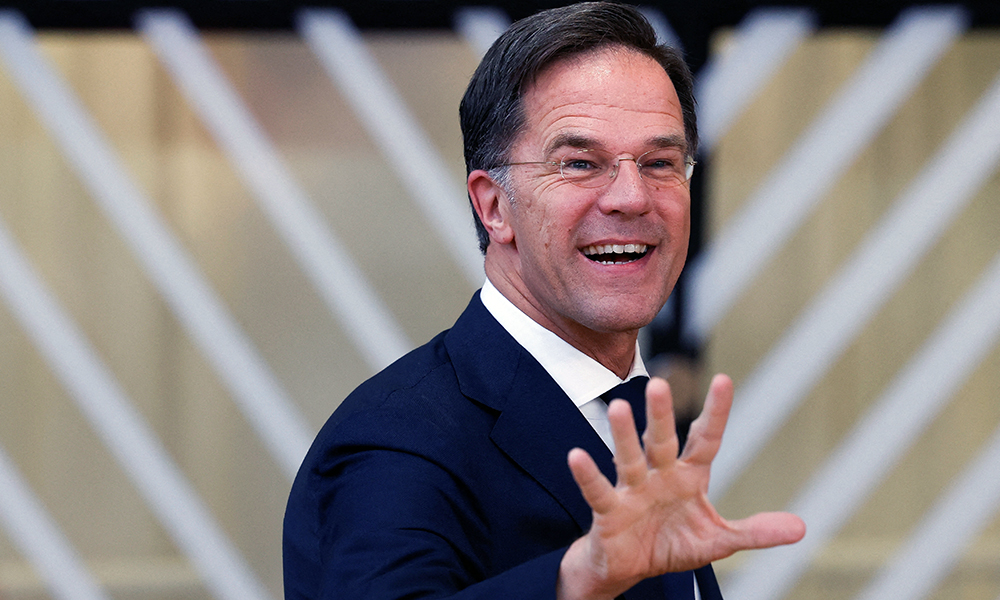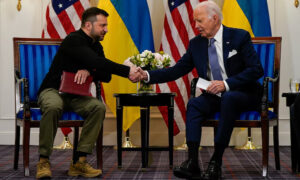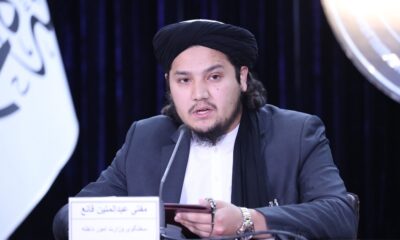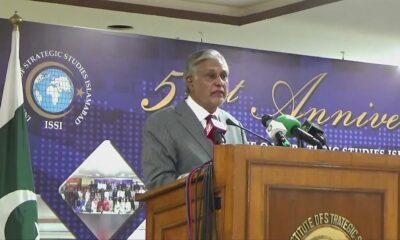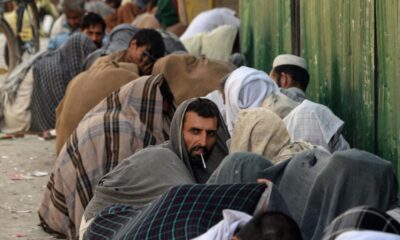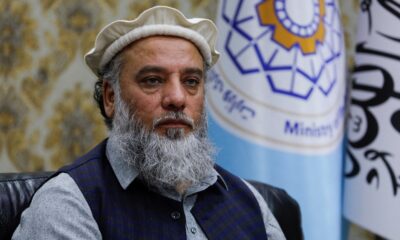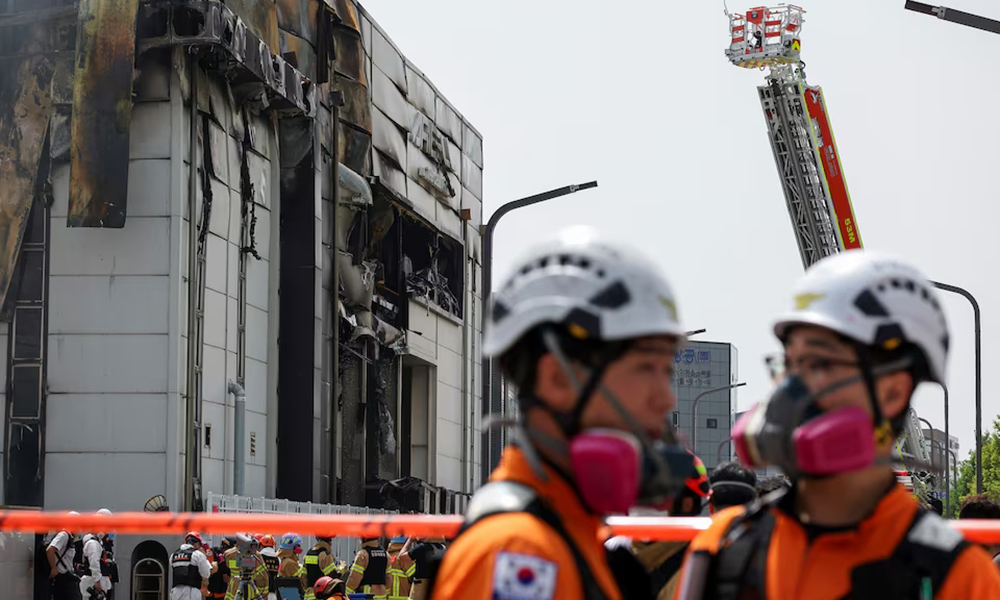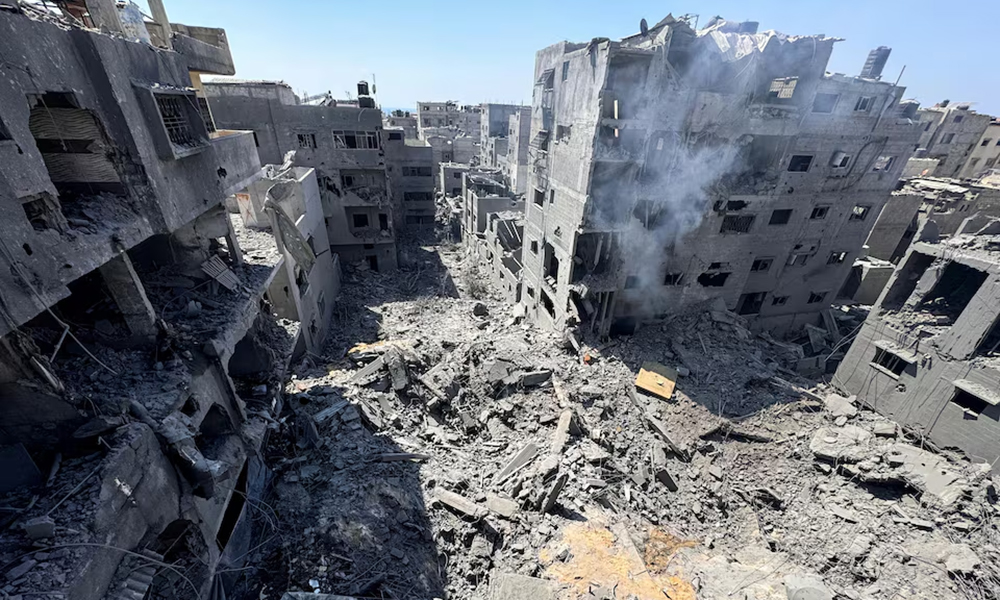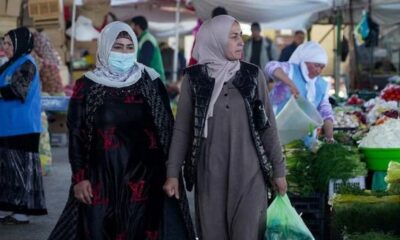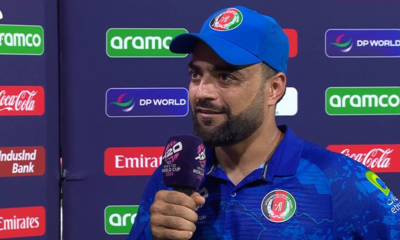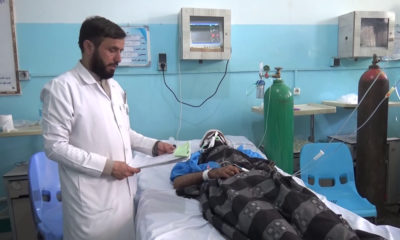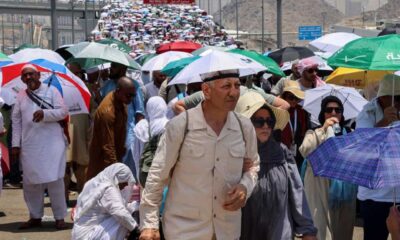(Last Updated On: )Eight Palestinians were killed on Sunday in an Israeli airstrike on a training college near Gaza City being used to distribute aid, Palestinian witnesses said, as Israeli tanks pushed further into the southern city of Rafah, Reuters reported .
The strike hit part of a vocational college run by the U.N. Palestinian refugee agency UNRWA that is now providing aid to displaced families, the witnesses said.
“Some people were coming to receive coupons and others had been displaced from their houses and they were sheltering here. Some were filling up water, others were receiving coupons, and suddenly we heard something falling. We ran away, those who were carrying water let it spill,” said Mohammed Tafesh, one of the witnesses.
A Reuters photographer saw a low-rise building completely demolished and bodies wrapped in blankets laid out beside the road, waiting to be taken away.
“We pulled out martyrs (from beneath the rubble), one who used to sell cold drinks and another who used to sell pastries and others who distributed or received coupons,” Tafesh said. “There are about four or five martyrs and 10 injured. Thank God, the condition of the injured is good.”
The Israeli military said the site, which it said had served in the past as a UNRWA headquarters, has been used by Hamas and Islamic Jihad militants. It added that precautionary measures were taken before the strike to reduce the risk of harming civilians, read the report.
“This morning (Sunday), IAF fighter jets directed by IDF and ISA intelligence struck terrorist infrastructure in which Hamas and Islamic Jihad terrorists were operating,” the military said in a statement.
“This is another example of Hamas’ systematic exploitation of civilian infrastructure and the civilian population as a human shield for its terrorist activities,” it added.
Hamas denies Israeli accusations that it uses civilians as human shields or civilian facilities for military purposes.
Juliette Touma, UNRWA’s director of communications, said the agency was looking into details of the reported attack before providing more information.
“Since the beginning of the war, we have recorded that nearly 190 of our buildings have been hit. This is the vast majority of our buildings in Gaza,” she said. A total of 193 UNRWA team members have been killed in the conflict, she added.
Just after midnight, an Israeli air strike hit a clinic in Gaza City, killing the director of ambulance and emergency services at the territory’s health ministry, Hani Al-Jaafarwi, and another medical staffer, Hamas media said. There was no immediate Israeli comment.
‘INTENSE PHASE’ ENDING
Israeli Prime Minister Benjamin Netanyahu said on Sunday that the phase of intense fighting against Hamas in the Gaza Strip would end “very soon” but that the war would not end until the Islamist group no longer controls the Palestinian enclave.
“After the intense phase is finished, we will have the possibility to move part of the forces north. And we will do this,” Netanyahu said in an interview with Israel’s Channel 14.
Israel’s fighting against Iran-backed Hezbollah has escalated on the northern border with Lebanon, where many Israeli towns have been evacuated. Netanyahu said a northern deployment would allow residents to come home.
More than eight months into Israel’s war in the Hamas-administered Palestinian enclave, its advance is focused on the two areas its forces have yet to seize – Rafah on Gaza’s southern tip and the area surrounding Deir al-Balah in the centre, Reuters reported.
Israel’s ground and air campaign in Gaza was triggered when Hamas-led militants stormed into southern Israel on Oct. 7, killing around 1,200 people and seizing more than 250 hostages, according to Israeli tallies.
The Israeli offensive in retaliation has killed almost 37,600 people, according to Palestinian health authorities, and has left Gaza in ruins.
Residents said Israeli tanks had advanced to the edge of the Mawasi displaced persons’ camp in the northwest of Rafah in fierce fighting with Hamas-led fighters, part of a push into western and northern Rafah during which they had blown up dozens of houses in recent days.
“The fighting with the resistance has been intense. The occupation forces are overlooking the Mawasi area now, which forced families there to head for Khan Younis,” said one resident, who asked not to be named, on a chat app.
The Israeli military said it was continuing “intelligence-based, targeted operations” in the Rafah area and had located weapons stores and tunnel shafts, and killed Palestinian gunmen.
The armed wings of Hamas and the Islamic Jihad movement said their fighters had attacked Israeli forces in Rafah with anti-tank rockets and mortar bombs and pre-planted explosive devices.
In Beit Lahiya in the northern Gaza Strip, health officials at Kamal Adwan Hospital said two babies had died of malnutrition. That took the number of children who have died of malnutrition or dehydration since Oct. 7 to at least 31, which health officials say is likely an undercount.
Related Stories:
Gaza conflict has caused major environmental damage, UN says

Afghan, Iranian acting FMs discuss bilateral cooperation, Gaza war


